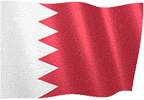
Kingdom of Bahrain
 Kingdom of Bahrain |
|
Quality Standards Bahrain Standards and Metrology Directorate (BSMD) Bahrain Standards and Metrology Directorate (BSMD) within the Ministry of Industry, Commerce and Tourism is the national standardization body and the national enquiry point of Bahrain; established in 1988 under the provision of the Legislative Decree No. 16 of 1985. The BSMD is responsible for standardization, metrology, conformity, and quality assurance. The BSMD prepares, revises, amends, and publishes approved Bahraini technical regulations and conformity assessments as well as Bahraini national standards, to meet international demands for quality, design, performance, safety and environmental impact of products and services. The BSMD also accepts and adopts, as appropriate, the technical regulations, standards, guides, recommendations of other foreign countries and of regional (Gulf and Arab States) and international organizations.(1) The National Committee for Standards and Metrology (NCSM) The National Committee for Standards and Metrology (NCSM) is chaired by the Minister of Industry, Commerce and Tourism comprises representatives of stakeholders from relevant ministries, the Bahrain Chamber of Commerce and Industry (BCCI), and independent technical experts. NCSM is responsible for:
Standards (2) The GCC Customs Union in theory requires member states to enforce unified standard across the region. Bahraini standards are required to meet national requirements for safety, quality, and fitness for purpose as determined by respective technical committees in Bahrain. Most often, Bahraini standards are adoptions of international or Gulf standards, and the development of standards in Bahrain is based on the following principles: a) no Bahraini standard is to be developed if there is an identical draft Gulf standard in existence, b) developing new Bahraini standards must not create trade barriers. Bahrain Standards Store (3) This service provided by the Ministry of Industry, Commerce and Tourism (MOICT), enables stakeholders to
search and buy standards and technical regulations online in an electronic format. Testing, inspection and certification (4) Most imported products can enter the market freely. The BSMD has established an office in Khalifa Bin Salman Port in the Customs Department to check and approve all regulated products before they enter Bahrain. Below is a list of products that are checked upon import into Bahrain:
Sanitary and phytosanitary measures (5) 1. Regulatory authorities:
2. SPS import requirements: When food or plant is imported into the Kingdom, random samples are drawn from shipments for laboratory analysis according to a predetermined plan. All consignments that are imported for the first time are analyzed before release. Results are assessed against GCC and Codex Alimentarius standards to ensure that imported food items are safe for human consumption. Unfit foodstuffs are rejected at the port of entry; they are either destroyed or returned to the country of origin (the decision is left to the importer). Here are some certification requirements for food and plant importation:
(1) Trade Policy Review – Bahrain 2014 - WTO(2) International Trade Administration – US Department of Commerce – Bahrain Guide(3) Ministry of Industry, Commerce and Tourism – Standards Store(4) International Trade Administration – US Department of Commerce – Bahrain Guide(5) Trade Policy Review – WTO – 2014 – Secretariat report(6) Organoleptically refers to the physical properties of food, such as colour, smell, taste, and texture |